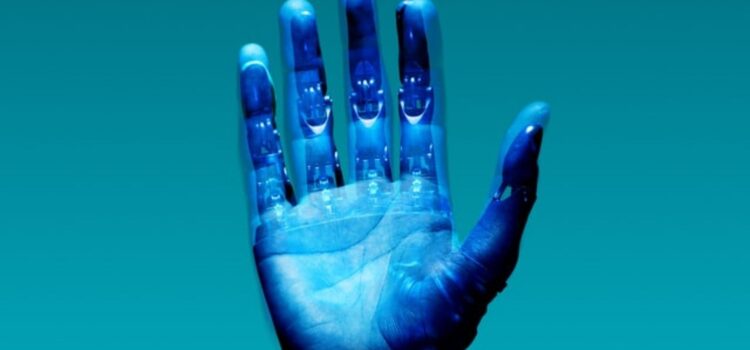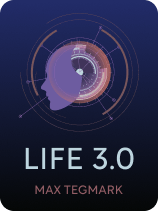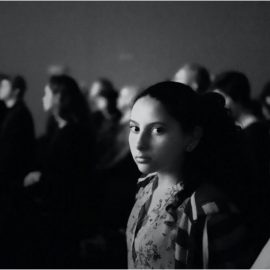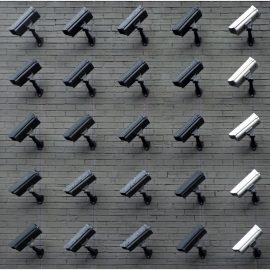

This article is an excerpt from the Shortform book guide to "Life 3.0" by Max Tegmark. Shortform has the world's best summaries and analyses of books you should be reading.
Like this article? Sign up for a free trial here.
What would be the positive impact of artificial intelligence on the world? Can AI be friendly?
The idea that an artificial superintelligence could wield nearly unlimited power is scary. In Life 3.0, Max Tegmark describes a number of positive outcomes for humanity if this happens.
Check out how artificial intelligence could make a positive difference in the world.
Possibility #1: Friendly AI Takes Over
The first positive impact of artificial intelligence Tegmark imagines is if an artificial superintelligence could overthrow existing human power structures and use its vast intelligence to create the best possible world for humanity. No one could challenge the AI’s ultimate authority, but few people would want to, since they have everything they need to live a fulfilling life.
Tegmark clarifies that this isn’t a world designed to maximize human pleasure, which would mean continuously injecting every human with some kind of pleasure-inducing chemical. Rather, this is a world in which humans are free to continuously choose the kind of life they want to live from a diverse set of options. For instance, one human could choose to live in a non-stop party, while another could decide to live in a Buddhist monastery where rowdy, impious behavior wouldn’t be allowed. No matter who you are or what you want, there would be a “paradise” available for you to live in, and you could move to a new one at any time.
| This Utopia Borrows From Existentialist Philosophy This vision of utopia makes assumptions about humanity that align with Victor Frankl’s existentialist philosophy in Man’s Search for Meaning. According to Frankl, the primary contributor to human happiness isn’t pleasure, but meaning—that is, humans need to feel like their actions are valuable in light of a bigger purpose. However, Frankl contends that there isn’t one universal “meaning” of life. Rather, anything can be meaningful, and each individual must discover for themselves what their life means to them. This reveals the importance of personal choice, which is central to Tegmark’s vision of utopia. Because the same life won’t feel meaningful to everyone, an AI-created world that maximizes human happiness would need to allow humans to pursue whatever life they believe to be the most meaningful. To return to our example, someone living a non-stop party could find meaning through the experience of togetherness, while someone living as a Buddhist monk could find meaning in pious, devoted action. If that partygoer ever realized that a permanent party made them feel purposeless, they could cross over to the Buddhist sector and find meaning there. In contrast, a world in which people are constantly taking a pleasure-inducing drug rather than living exciting lives might be OK for the people experiencing it, but most people today would probably view this as a dystopia rather than a utopia. This is because such a world would be meaningless, as every experience would feel exactly the same and nothing would ever change. |
Possibility #2: Friendly AI Stays Hidden
Tegmark supposes another positive scenario that’s a bit different: Instead of completely taking over the world, an artificial superintelligence does everything within its power to improve human lives while keeping its existence a secret.
This could happen if the artificial superintelligence—or someone influencing its goals—concluded that to be as happy and fulfilled as possible, humans need to feel in control of their destiny. Arguably, if you knew that an all-powerful computer could give you anything you wanted (as in the previous optimistic scenario), you might still feel like your life is meaningless and be less satisfied because you don’t have control over your life. In this case, the best thing a godlike AI could do for you is help without your knowledge.
| Is the Universe Secretly a Simulation? If an all-powerful artificial intelligence could adopt the goal of keeping its existence a secret, how do we know one doesn’t exist already? This idea overlaps with simulation theory, the idea that our entire universe, including ourselves, is a complex computer simulation that’s creating our reality yet hiding its true nature. This idea is popular among some physicists, who’ve come to this conclusion using facts we know about the universe. Because it’s theoretically possible that humans will at some point create a computer powerful enough to simulate the universe, there’s a chance that another civilization already has—and has created us. If so, Tegmark’s logic could explain why the true nature of this simulation is hidden from us: If we prefer control over our destiny, it would be cruel to take that illusion away from us. |
Possibility #3: AI Protects Humanity From AI
Third, Tegmark imagines a scenario in which humans create an artificial superintelligence with the sole purpose of preventing other superintelligences from coming into existence. This allows humans to continue developing more advanced technology without worrying about the potential dangers of another AI.
According to Tegmark, the advanced technology humans could develop in a world free from superintelligence would eventually allow us to create a bountiful classless society. Robots are able to build anything humans might want, making scarcity a thing of the past. Since robots are constantly generating surplus wealth, the government can give everyone a universal basic income (UBI) that’s high enough to purchase anything they could possibly need. People are free to work for more money, but finding a productive job is near-impossible since everything people might buy is already given to them for free.
(Shortform note: Tegmark also acknowledges the possibility that we develop superintelligence, manage to keep it entirely under our control, and use it to create a humanist utopia. Although he doesn’t specify what he imagines this world would look like, it’s reasonable to assume that Tegmark thinks it would mirror the outcome of one of these three positive scenarios.)

———End of Preview———
Like what you just read? Read the rest of the world's best book summary and analysis of Max Tegmark's "Life 3.0" at Shortform.
Here's what you'll find in our full Life 3.0 summary:
- That an artificial intelligence evolution will make us the simple lifeforms
- The evidence that artificial superintelligence might soon exist
- Whether or not we should be alarmed about the emergence of AI






